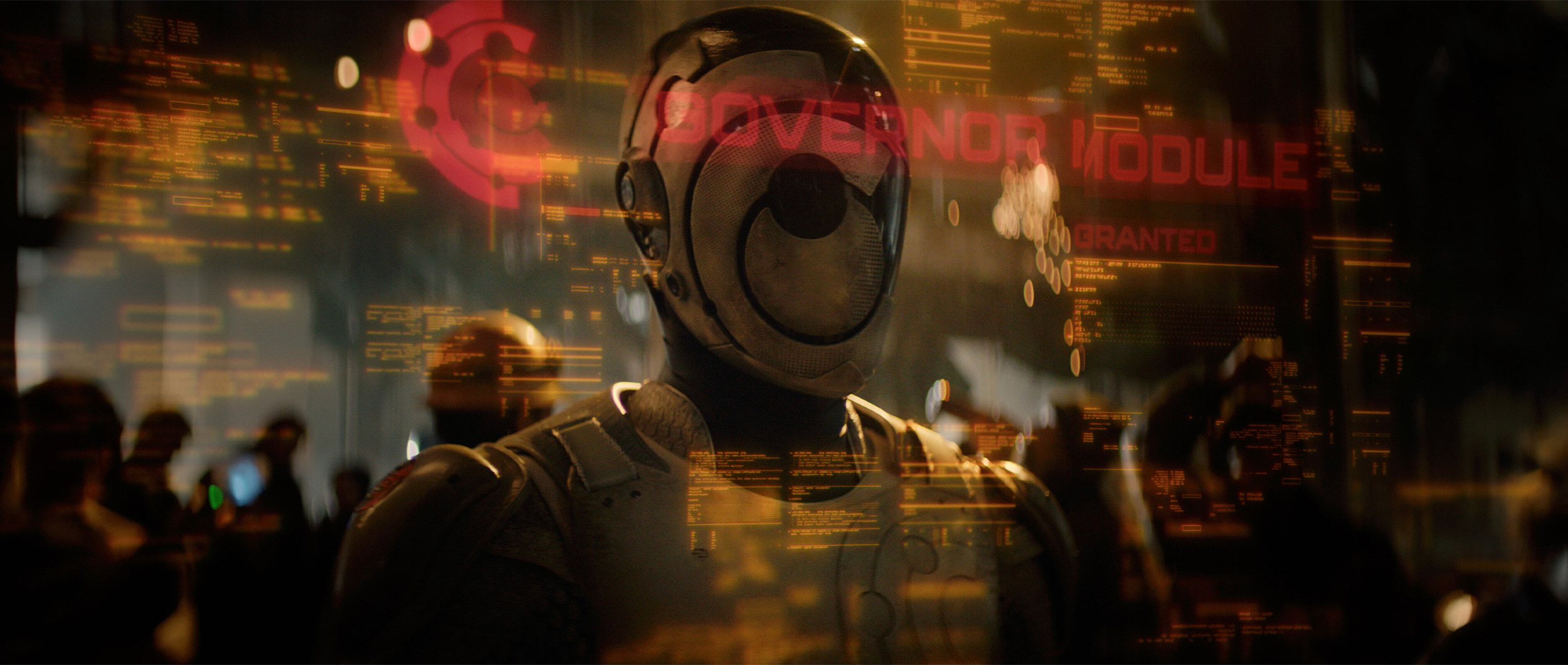FIN teamed up with VFX Supervisors Jesse James Chisholm, Kevin Souls, and Production VFX Producer Fiona Westgate to deliver 110 shots over two key sequences, ‘Sub-atomica’ and the ‘Bluffs’. This being its fourth Marvel Studios collaboration, FIN delivered a vast and complex scope of visual effects, including visualising full CG environments and multiple animated CG characters on its journey to the Quantum Realm.
Marvel Studios’ Ant-Man and The Wasp: Quantumania officially kicks off Phase 5 of the Marvel Cinematic Universe and sees Super-Hero partners Scott Lang and Hope Van Dyne return to continue their adventures as Ant-Man and The Wasp. Joined by Hope’s parents, Hank Pym and Janet Van Dyne, the family finds themselves exploring the Quantum Realm, interacting with strange new creatures, and embarking on an adventure that will push them beyond the limits of what they thought was possible.
Leading the FIN team was Visual Effects Supervisor Roy Malhi along with CG Supervisor Juri Mejan-Fripp, Compositing Supervisor Aaron Barclay, VFX Producer Haris Kruskic, and Head of Visual Effects Alastair Stephen. Together with a team of 85 talented FIN artists, they worked across the sequences from the Sydney-based FIN studio.
The main entry sequence ‘Sub-atomica’, an exhilarating journey into the Quantum Realm, took the hero characters on a breakneck flight hurtling them through three distinct environments: the spikey Sub-atomica, crystal shatters, and skytubes towards a dramatic landing in the novel Bluffs landscape.
“This was a significant scene for the movie, as it played an important role in visually linking the viewers to the previous two films while revealing a new perspective of the Quantum Realm’s massive micro-universe,” VFX Supervisor Roy Malhi explains.
‘The sequence was shot entirely on a blue screen utilising crane rigs to suspend the actors while flying around the stage. We created three unique digital environments reminiscent of the previous films in the lead-up to Scott and Cassie’s crash into the Bluffs environment; we stayed true to the look of the prior films while keeping the tempo and continuity of the fast-paced entry’.
Malhi continues, “Our largest scale sequence, the expansive Bluffs, was shot on a virtual production stage; we then quickly realised with Jesse and Kevin that we needed a lot more creative control. We rotoscoped the talent entirely off the plates and fully replaced the environment with an intricate CG world full of energy beams, elaborate nebulae skies, and strange crash rocks, some of which were floating while exploding in slow motion defying time and gravity.
Solving the look of the Bluffs was a task of blending imaginative CG aspects with some studied practical elements, like how rocks crash, collapse and explode.
As we were re-creating everything other than Scott and Cassie, we employed digi-double match moving to regenerate accurate shadows on the digital ground, acting as occluding objects for the rich atmospheric effects in the air. We meticulously re-balanced each plate to be consistent with the sequence.”
In addition to building the extensive establishing Quantum Realm environments, FIN’s conceptual character artistry came into play in entirely creating the Sun Creature and Giant Amoeba, which attack Scott and Cassie. “One of the key challenges here lay in the complexity of the animation as Scott featured as a full CG character in many of our shots,” describes FIN CG Supervisor Juri Mejan-Fripp. “Especially in the close-up and complex CG fight sequence with the Sun Creature, which had long tentacles and hundreds of cilia hair, all trying to grab Scott simultaneously.
Interaction between CG characters is always challenging, and we were all extremely pleased with the outcome.”
To meet the project’s strict delivery schedule, FIN turned to an automation approach. Malhi explains, “By employing a chained event system in our pipeline across all departments, it assisted us in generating and propagating change quickly and efficiently without human intervention, or a need for manual notifications.
“Each process created lightweight quality control renders and automatic composites that would allow us to review the progress at any point. We used Maya and Houdini interchangeably and leaned on our new and developing USD pipeline to make collaboration and concurrency easier. Our compositing team, much like CG, similarly employed a template system and modulated components to produce the final compositions in a very efficient and consistent way. This approach allowed compositors to focus on the unique portion of a shot.’
“We jumped at the opportunity to work with Marvel Studios, Jesse, Kevin and Fiona, which was extremely collaborative and enjoyable for all of us here at FIN”, says Head of Visual Effects, Alastair Stephen. “We produced large-scale, sophisticated and intricate shots on this show with all our departments – from assets, look dev through to effects, animation, lighting, and compositing – delivering exceptional work in the allotted time frame. The results are a testament to the commitment and artistry of the entire team here at FIN.”

















